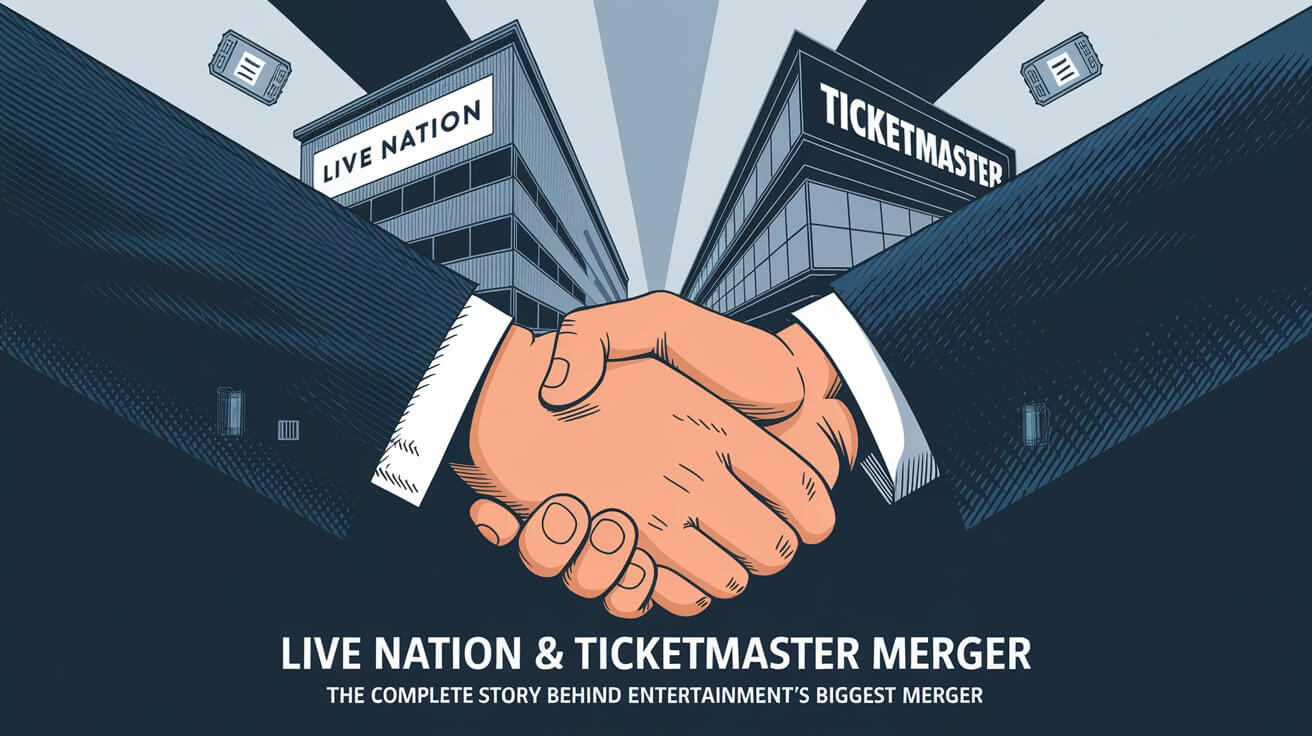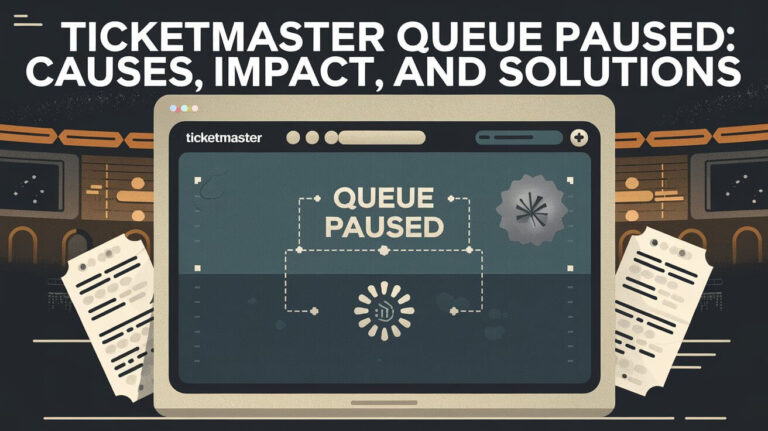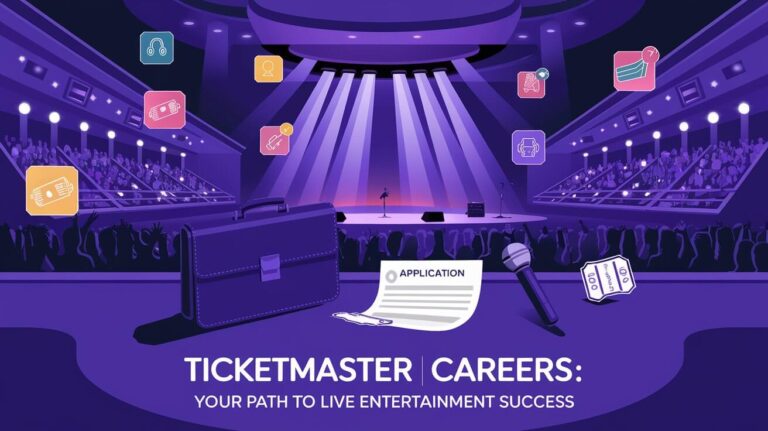
Yes, Live Nation owns Ticketmaster. The two companies merged in 2010 to form Live Nation Entertainment, creating the largest live entertainment company in the world. The merger transformed how concerts, sports events, and live shows operate in the United States and globally.
Live Nation-Ticketmaster: Key Facts About the Entertainment Giant
The Current Corporate Structure
Live Nation Entertainment serves as the parent company, with Ticketmaster operating as its wholly-owned subsidiary. The company’s headquarters sits in Beverly Hills, California. Liberty Media Corporation holds the position of largest shareholder in Live Nation Entertainment.
The company runs three main business segments: concerts, ticketing, and sponsorship/advertising. Together, these divisions generate over $22 billion in annual global revenue. This structure lets Live Nation control multiple aspects of live entertainment, from selling tickets to managing venues.
Scale of Operations and Market Presence
Live Nation’s reach extends far beyond simple ticket sales. The company owns or controls more than 265 concert venues across North America. Of these, they manage over 60 of the top 100 amphitheaters in the United States.
Ticketmaster handles ticket sales in 30 countries worldwide. They work with over 12,000 global clients and sell more than 500 million tickets each year. This massive scale makes them significantly larger than their closest competitors in the ticketing industry.
Financial Performance and Revenue Streams
As of summer 2024, Live Nation Entertainment’s market value stands at $22.7 billion. The company earns money through multiple channels:
- Primary ticket sales
- Concert promotion
- Venue management
- Artist management
- Sponsorship deals
- Advertising revenue
The Path to Entertainment’s Biggest Merger
Ticketmaster’s Early Years (1976-2009)
Ticketmaster’s story begins in Phoenix, Arizona. College staffers Albert Leffler and Peter Gadwa, along with businessman Gordon Gunn, founded the company in 1976. Their first major event came in 1977 – an Electric Light Orchestra concert at the University of New Mexico.
The company grew rapidly through the 1980s and 1990s. They launched Ticketmaster.com in 1995, initially just for information. Online ticket sales started in 1996, the same year they went public with a $2.80 billion market value.
The 1990s saw Ticketmaster become a pioneer in digital ticket sales. They kept expanding their reach, signing deals with major sports franchises and international venues. Their early move into online sales helped cement their position as an industry leader.
Live Nation’s Rise to Power
Live Nation started life as SFX Entertainment in 1996. Its original goal? To unite concert promoters nationwide and challenge Ticketmaster’s dominance. Clear Channel Communications bought the company in 2000, then spun it off as Live Nation in 2005.
The company kept growing its empire. In 2006, they bought the House of Blues chain of venues. By 2007, they’d launched their own ticketing business. These moves set the stage for an even bigger change in the live entertainment industry.
The 2010 Merger Deal
In February 2009, Live Nation and Ticketmaster announced their plan to merge. The $2.5 billion all-stock deal would reshape the entertainment industry. But first, they needed government approval.
The Department of Justice (DOJ) reviewed the deal carefully. They worried about too much power in one company’s hands. After negotiations, the DOJ approved the merger in January 2010 with specific conditions attached.
The merged company took the name Live Nation Entertainment. Ticketmaster stockholders received about 1.474 shares of Live Nation common stock for each Ticketmaster share they owned.
Live Nation-Ticketmaster’s Business Model
Concert Promotion and Venue Management
Live Nation promotes more than 22,000 concerts yearly for 1,500 artists across 57 countries. They manage venues ranging from small clubs to major stadiums. This control over venues gives them significant influence in the live music industry.
The company uses what they call a “flywheel” business model. They earn fees from concert fans and sponsorships. This money helps sign artists to exclusive deals. Then they use these relationships to secure long-term venue contracts.
Ticketing Services and Technology
Ticketmaster runs the largest concert ticketing operation in the United States. They sell tickets when they first go on sale and operate resale platforms for later transactions. Their technology handles billions of ticket requests for major events.
Recent innovations include the Verified Fan Initiative and Presence systems. These programs aim to reduce bot purchases and fake tickets. They help fans buy tickets at face value before resale markets drive up prices.
Artist Management and Relationships
Live Nation invests heavily in supporting musicians. In 2022, they spent over $9.6 billion on concerts – more than record labels spend on artist development. This investment helps them maintain strong relationships with performers.
The company works with both established stars and emerging artists. They offer services beyond just ticket sales, including promotion, venue access, and tour management. This comprehensive approach helps them attract and keep talented performers.
Regulatory Oversight and Legal Challenges
Department of Justice Settlement (2010)
The 2010 merger approval came with strict conditions. The DOJ wanted to prevent a monopoly in live events. Key requirements included:
- Licensing Ticketmaster’s platform to competitor AEG
- Selling off the Paciolan ticketing business
- Allowing venues to use competing ticketing services
- Preventing forced bundling of services
Compliance Issues and Extensions
In 2019, the DOJ found Live Nation had violated parts of the settlement agreement. They had pressured venues to use Ticketmaster by threatening to withhold concerts. This led to a five-year extension of the original settlement terms.
The company agreed to clearer rules about their behavior. They also paid the DOJ’s attorney fees but avoided direct fines. The extension aimed to ensure better compliance with competition rules.
The 2024 Antitrust Lawsuit
In May 2024, the DOJ filed a major antitrust lawsuit against Live Nation-Ticketmaster. Thirty states joined the action. The suit claims the company monopolizes several aspects of the live concert industry.
The lawsuit seeks to break up the company. It alleges various anti-competitive practices, including:
- Exploiting relationships with potential competitors
- Retaliating against venues working with rivals
- Blocking venues from using multiple ticketing services
- Restricting artists’ venue access
- Acquiring smaller competitors
Market Impact and Industry Position
Competition in the Ticketing Industry
Despite their dominance, Live Nation-Ticketmaster’s market share has actually decreased since the merger. They now control 65-70% of the market, down from 80% in 2010. Competitors like StubHub and SeatGeek have gained ground.
New companies continue entering the market. SeatGeek launched after the merger and has built significant market share. This shows that competition remains possible, even with Live Nation-Ticketmaster’s strong position.
Effects on Artists and Venues
The company’s influence affects both major stars and smaller performers. Their venue control and promotion power can impact where and when artists perform. However, they also provide significant financial support to the music industry.
Venues face complex choices about ticketing partners. Working with competitors might risk losing access to popular acts. Yet some venues successfully maintain independence through alternate ticketing arrangements.
Consumer Experience and Pricing
Ticket pricing reflects broader industry changes. As streaming reduced recorded music revenue, concert tickets became artists’ main income source. This shift drove price increases across the industry.
Technical challenges sometimes affect the consumer experience. The 2022 Taylor Swift tour sale saw 3.5 billion system requests – far beyond previous peaks. Such incidents highlight both the scale of modern concert demand and system limitations.
Recent Developments and Future Outlook
Notable Events and Controversies
The Taylor Swift ticket sale problems in 2022 brought new scrutiny to Live Nation-Ticketmaster. The incident led to Senate hearings and renewed calls for industry reform. It showed how even small technical issues can affect millions of fans.
The company faces ongoing criticism about fees and pricing. Yet they argue that high prices often reflect artist decisions and basic supply-demand dynamics. Popular shows regularly see demand far exceeding available seats.
Technology and Innovation
Live Nation-Ticketmaster continues investing in new technologies. They focus on preventing ticket fraud and improving the purchase experience. Digital tickets and anti-bot measures represent key areas of development.
Their systems must handle enormous spike in demand for major events. The challenge involves balancing system stability with peak capacity needs. Even Amazon has faced similar issues with its Prime Day sales.
Industry Changes and Adaptation
The live entertainment industry keeps evolving. Streaming changes how fans consume music. Artists rely more on touring revenue. These shifts affect how Live Nation-Ticketmaster operates and adapts.
The pending antitrust lawsuit could force major changes. Yet the company’s deep industry integration makes simple solutions unlikely. The outcome will shape live entertainment’s future for years to come.
The music industry has changed dramatically since Live Nation bought Ticketmaster in 2010. Online streaming, digital tickets, and new technology keep shifting how live events work. Through it all, Live Nation Entertainment remains the industry’s biggest player, facing both opportunities and challenges ahead.






